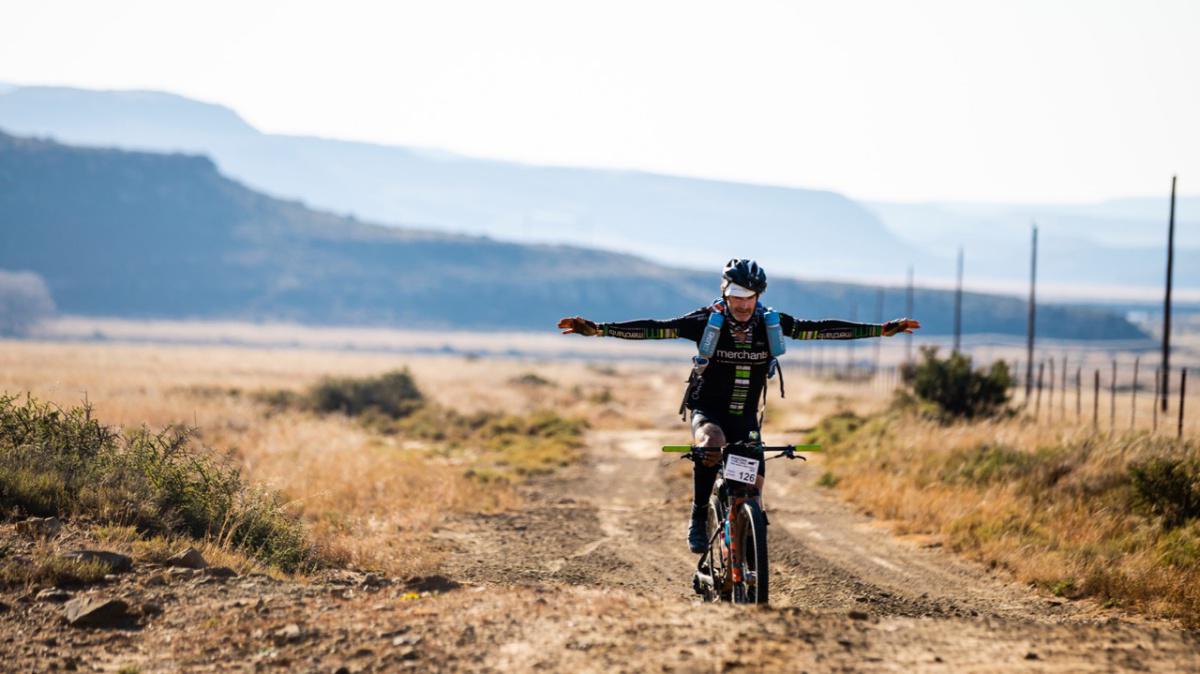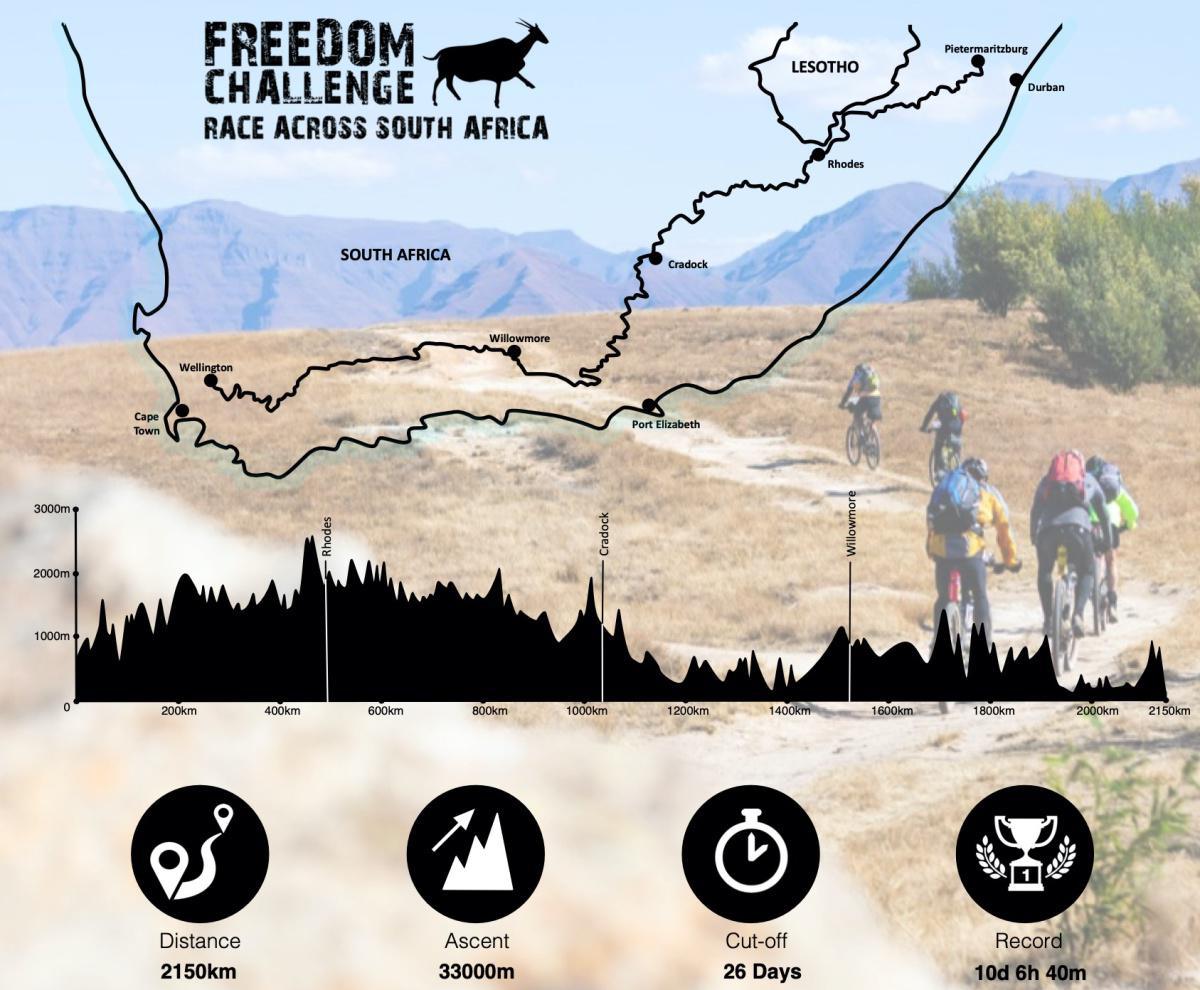This year’s Race Across South Africa (RASA), which falls under the Freedom Challenge banner, officially started in Pietermaritzburg on Wednesday 7 October 2020.
The 2 150km race, which was originally scheduled for June, will see riders depart from the City Hall in batches of five to eight per day over the next five days.
“There have definitely been additional challenges in staging this year’s event due to the coronavirus,” said race director Chris Fisher.
“We’ve had to include many more safety protocols on the route and in the support stations.”
He added that there had also been a fair amount of additional bureaucracy, particularly with portions through state owned land and parks.
“We’re just so relieved to finally be able to get riders out on the trail in what has to be the ultimate social distancing event.”
The event normally has a field of 40 to 50 riders, with 47 starting and 42 finishing last year, but this year only 23 riders will start over the next couple of days.
Fisher said there were pros and cons to hosting a reduced field.
“A smaller field is much easier to manage from a safety and logistical point of view.
“However, without any financial sponsorship, we do rely on entry fees to make the event feasible, so a smaller field is tighter budget-wise.”
The race, which celebrates its 17th edition this year, is a physically and mentally demanding undertaking. To complete this challenge, riders need to be adequately trained, equipped and prepared.
Since the route is not marked, riders need to navigate by means of maps, compass and narrative directions.
The use of GPS devices during the race is strictly prohibited, which is in line with the original tradition and ethos of the Freedom Challenge.
“The riders will navigate their way through the Umkomaas Valley, stop at the Centocow Mission Station and traverse their way through the Ntsikeni Nature Reserve.
“They will then follow the route taken by Trappist monks as they head into the area previously known as No man’s land and East Griqualand, and then across the Maloti Drakensberg Mountains to the village of Rhodes.”
The event eventually finishes at Diemersfontein Wine & Country Estate in Wellington.
Fisher said that many of the trails retraced old historic wagon routes which are no longer in regular use.
“Riders will encounter a wide variety of off-road terrain, which includes dirt roads, farm roads and tracks, footpaths and animal tracks.”
Among the 2020 starters are some multiple Basutho blanket wearers, including Tim James and Alex Harris (both multiple winners of the event), as well as Mike Woolnough and Arno Crouse.
“Former winner Janine Stewart is surely the favourite to win the women’s race, and we’ll have to see if Martin Dreyer’s phenomenal record of 10 days and six hours can be broken,” said Fisher.
Joining James, Harris, Woolnough and Crouse are some riders tackling the Race to Rhodes, which is an introductory race that covers the first 480km of the trail that makes up the first six days of RASA.
Each rider carries a satellite tracker and spectators can follow the live tracking online at www.freedomchallenge.org.za.
“This event is a journey into one’s own soul and offers a perspective on our beautiful country that few other get to see and experience,” said Fisher.
To date 275 people have earned themselves a coveted Basutho blanket (there is no prize money whatsoever) by finishing the 2 150km race within the 26-day limit.
Many more have failed. Let the games begin.
PHOTO: The 2020 Race Across South Africa (RASA), which falls under the Freedom Challenge banner, started in Pietermaritzburg this morning. Riders are aiming to complete the 2 150km race within the 26-day limit. Photo: LLewellyn Lloyd of RebleX Photography



